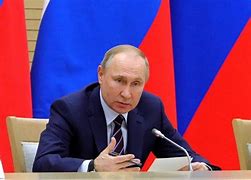World
Ceasefire must not affect war on terror, says Syria Minister

Damascus: Syrian Minister of National Reconciliation Ali Haidar today stated that the ceasefire must not affect the war on terror.
The minister on Tuesday hailed the government acceptance to observe a cessation of hostilities as agreed upon by the US and Russia, as per reported.
He, however, said that government acceptance includes details that should not be overlooked.
“There are details for the government acceptance, mainly not to exclude the war on terror from any international effort, to have a clear roadmap about the areas where terrorists are located,” minister said.
He added that the Islamic State (IS) and the Al-Qaeda-linked Nusra Front were not the only terrorist groups in Syria.
“Here I also say that terrorism is not only confined to Daesh and al-Nusra, but all of the other groups, which are still holding arms in the face of the Syrian army,” he said.
Syria’s Foreign Ministry on Tuesday announced that the Syrian government consents to observe a cessation of hostilities as agreed upon by the US and Russia.
The ministry said the military campaign against the IS and Nusra Front will continue in accordance to the US-Russian agreement.
It, however, warned that the Syrian army has the right to respond to any violation by the opposition forces against the people or the military forces.
A day earlier, Russia and the United States agreed to enforce a cessation of hostilities starting from February 27.
World
Lockdowns in China Force Urban Communities to Defy Censorship and Vent Frustration Online

Shanghai’s rich middle class is leading a wave of online dissent over the strict and prolonged lockdowns imposed in various parts of the country. Chinese internet censorship is struggling as patience is wearing thin in many urban centers, coming up with creative forms of online protests.
Social Media Posts Revealing Lockdown Tension in Shanghai
Drawn-out lockdowns are nothing new in China as authorities insist with the nation’s zero-Covid policy since the start of the pandemic. Currently over This time around, however, metropolitan areas like Shanghai are increasingly difficult to keep quiet, given that its more than 25 million residents have seen weeks of total isolation along with food shortages and many other service interruptions.
Dozens of towns and reportedly over 300 million Chinese citizens have been affected by lockdowns of different severity. As expected, urban netizens have been most outspoken over their difficulties by finding creative ways to get around state censorship and bans placed on topics, news comments and spontaneous campaigns.
Shanghai residents have been using mobile proxies and hijacking seemingly unrelated hashtags to talk about healthcare issues, delivery failures and the overall severity of their situation. The “positive energy” that the Chinese government wants to transmit during the recent prolonged series of lockdowns does not come naturally to those counting food supplies and online censors are working hard to filter words, trending topics and undesired social media sharing.
WeChat groups and message threads are under constant monitoring. Posts questioning the zero-Covid approach have been quickly deleted, including by leading Chinese health experts like Dr. Zhong Nanshan. Video footage is soon censored and protests and investigations are quickly made to disappear.
Where this has not worked, officials have exposed banners with warnings and outright threats like “watch your own mouth or face punishment”, while drones have been patrolling the city skies. Yet, if anything, this has led to further tensions and unspoken confrontation with Shanghai’s educated and affluent middle class.
Creative Online Solutions Harnessing Civic Energy
Announcements by Chinese social media that they would be publishing the IP addresses of users who “spread rumors” have not helped either. Tech industry research has shown that much of Asia’s tech-savvy population has a habit of using mobile proxies and other privacy tools, quickly finding workarounds to browse the internet freely and talk to the world about the hottest topics.
The sheer volume of forbidden posts is already a challenge for the very censorship system, experts explain. Unable to track all trending hashtags, state workers overlook topics that speak about the US, Ukraine or other popular news. Linking human rights elsewhere to their situation, Chinese online dissidents establish their informal channels and “hijack” the conversation to share personal or publicly relevant information about the Covid suppression in their town.
Sarcastic and satirical posts still dominate. Others hope to evade the censors by replacing words from famous poems or the national anthem. One thing is certain – social media, when harnessed with the right creativity, has proven its ability to mount pressure on the government in even some of the most strictly controlled tech environments like China.























